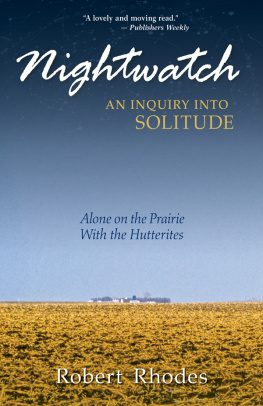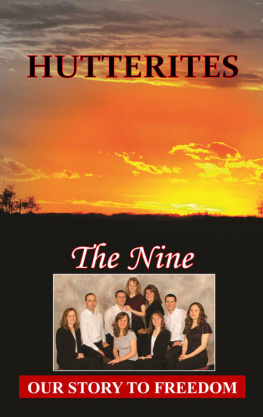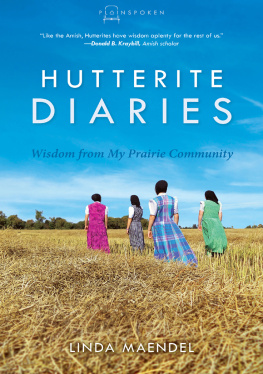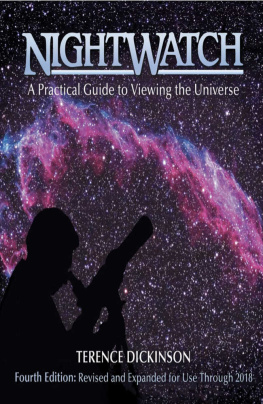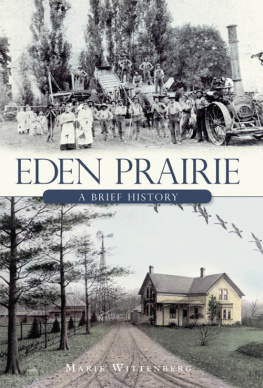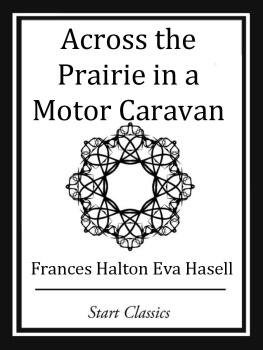A Note About the Text
Because the Hutterites, like the members of many plain groups, prefer to remain relatively anonymous, some effort, though not much, has been made to maintain the privacy of certain people in this narrative. This includes both Hutterite and non-Hutterite figures in this book, but only extends to the changing of a few names. All places and events in this book exist and took place to the best of the authors recollection.
Acknowledgments
Quotations attributed to The Chronicle of The Hutterian Brethren are from these two publications:
The Chronicle of the Hutterian Brethren, Volume I . Rifton, NY: Plough Publishing House, 1987.
The Chronicle of the Hutterian Brethren, Volume II . Ste. Agathe, MB: Crystal Spring Colony, 1998.
Cover photograph by Jan Gleysteen
Design by Cliff Snyder
NIGHTWATCH
Copyright 2009 by Good Books, Intercourse, PA 17534
International Standard Book Number: 978-1-56148-666-3
Library of Congress Catalog Card Number: 2009017181
All rights reserved. Printed in the United States of America.
No part of this book may be reproduced in any manner, except for brief quotations in critical articles or reviews, without permission.
Library of Congress Cataloging-in-Publication Data
Rhodes, Robert E., 1964
Nightwatch : an inquiry into solitude : alone on the prairie with the Hutterites / Robert Rhodes.
p. cm.
ISBN 978-1-56148-666-3 (pbk. : alk. paper) 1. Hutterian Brethren. 2. Hutterian Brethren--Minnesota--Gibbon. 3. Christian communities--Minnesota--Gibbon. 4. Gibbon (Minn.)--Church history. I. Title.
BX8129.H8R46 2009
For Duann, who also lived this way.
Have you had sight of Me, Jonas My child? Mercy within mercy within mercy.
Thomas Merton, Fire Watch, July 4, 1952,
The Sign of Jonas.

Nightwatch, Starland Colony, Gibbon, Minnesota, December 1999.
At night, back when I was a communist, the place where we lived on the prairie of southern Minnesota took up a cloak of indivisible silence. In winter, this quiet was disrupted only by the wind. Because it seemed to last for months at a time, these gales that blew down from Canada and Lake Superior became another dimension of the same vast absence of sound.
But whenever the wind stopped, all perception was instantly restored the creaking of a metal sign, the mailbox vibrating on its jittery post after someone tossed in a letter and slammed the hatch. Everything alive seemed to pause with the wind, listening to its sudden departure and puzzling over whether some vague disaster were about to strike.
Starland Colony, a community of the Hutterian Brethren a Christian peace church that has been living in large farming communes for nearly 500 years, from eastern Europe to the plains of the United States and Canada occupies about 2,000 acres in extreme northwest Sibley County. Within a short walk of the main community, with its houses, barns, a large communal kitchen, and a state-of-the-art metal working shop, were the bounds of two other counties, Renville and McLeod. These coincided a mile or two from our long, narrow section road. All told, we occupied a very small, distinctly confined corner of what most people would charitably call nowhere.
Our tiny mail town, Gibbon, was seven miles of right angles to our south and west. A locus of bars and a VFW hall and a large, imposing grain elevator, Gibbon is perhaps best known for a rambling klatch of buildings known as the Gibbon Ballroom. Each broad, low structure in the 12-acre compound had its own name prominent among them the Boom Room and the Pumpernickel Room (noted for its frosty air-conditioning). There, each July the town hosted a long, perhaps mildly lost, weekend of beer and sausages and three-step dance music known as Polka Days. This revel was attended by hundreds of RV-driving cloggers from across the Great Plains, all dressed in costumes of bright, quarrelsome colors. One summer, a sign on one of the RVs, during a year when the future of Polka Days seemed in question, expressed the neighborly resignation of towns like this: Old friends never die. They just polka away. So it would be in Gibbon.
Each year, while the staid and plain-dressed Hutterites stood a resolute watch from only a few miles away, bands such as Chuck Thiel and the Jolly Ramblers, Ray Sands and the Polka Dots, and Becky and the Ivanhoe Dutchmen held court here.
This night, though, on the marquee outside the Boom Room, rocking tenuously in the steady northerly wind of December, the motto of Gibbons most popular establishment summed up the festivals, and the towns, prevailing rationale: Stay Young, Go Dancing. Underneath was a bitter footnote written by economics and the ice that often encased this land for nearly half the year: Closed for the Season.
Gibbon, it seemed, was a place where many diverse worlds crossed paths. In November 1997, during a four-day blizzard, the popular Minnesota radio show A Prairie Home Companion broadcast from the Ballroom, bringing all sorts of other strange-looking people to gawk at this faraway expanse of sky. The well-heeled appearance of these SUV-driving city people only reminded us locals of how austere, and of how separate, we all really were. One snowbound morning before the show aired, when I had gone to the Gibbon post office, I saw the programs host, Garrison Keillor, emerging from Thorsons Bakery across the street. The first time Id seen Thorsons, Id thought it sounded like one of the hangouts in Keillors quasi-fictional Lake Wobegon, Minnesota. In downtown Gibbon the glittering, snowy glare bouncing off the grain elevator here was life reflecting someones vision of art.
Due east of Gibbon, down a straight, well-traveled highway, was a slightly larger town, Winthrop. Despite having no ballroom, or even very many bars, Winthrop seemed to be surviving slightly better than Gibbon.
The houses in Winthrop were orderly, and a public library actually seemed to thrive, despite the preponderance of well-read Westerns and romance novels. Even if they were not great literature, these were a fluffy intellectual staple for many on the lonely, snowy plains, where wind-ravaged hearts and minds either turned inward every winter, or drew people to congregate in the Legion Hall over languorous glasses of Grain Belt beer.
Winthrop also had a nursing home, where many of the women from the Hutterite colony went to help with sewing several times a month. This was where the old corn farmers and their sturdy, hard-working wives finally forsaking land and crops and solitude for life in town went to spend their fading dotage or to wait out whatever fatal illnesses would strike them down.
In the middle distance, down the highway that led eventually to Mankato and Rochester, flowed the steady plume of steam from a corn-fed ethanol plant, the only sign of substantial industry other than field crops for miles around.
To the north of Starland, on a razor-straight county road, was a pinpoint on the map known as Fernando, ubiquitous in its handful of white clapboard houses and an old Lutheran church, the slender steeple of which could be seen for several miles, surrounded by a stand of cottonwood trees.
Fernando, at some point, must have been terribly important to the local population because the nearest highway curves more than two miles out of its way to pass through there. Still, all but a few have moved away, and a tiny store where the colony children used to ride their bikes to buy ice cream on summer afternoons has long since closed.

